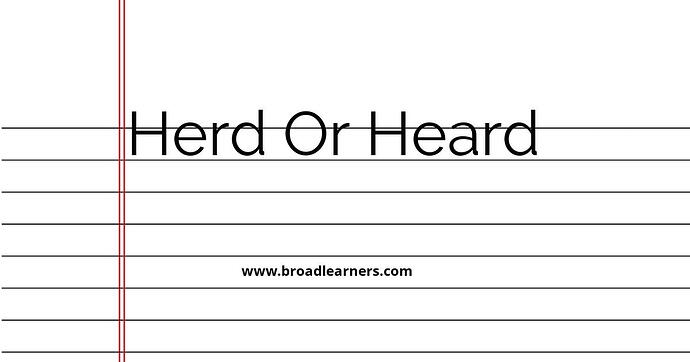'Herd' and 'heard' are commonly confused words in English grammar. Understanding the difference between 'herd' and 'heard' is important to use them correctly in written and spoken English.
'Herd' is a noun that refers to a group of animals, especially cattle or sheep, that are kept, fed, and managed together. It can also be used as a verb to describe the act of gathering or moving a group of animals.
'Heard' is the past tense and past participle of the verb 'hear'. It is used to indicate that someone perceived or received information through their ears.
Let's take a closer look at the meanings and usage of 'herd' and 'heard'.
| 'Herd' | 'Heard' |
|---|---|
| The word 'herd' is a noun that refers to a group of animals. | The word 'heard' is the past tense and past participle of the verb 'hear'. |
|
|
To remember the difference between 'herd' and 'heard', it can be helpful to associate 'herd' with animals and 'heard' with the act of perceiving or receiving information through the ears.
Here are some examples of correct usage:
- The shepherd led the herd of sheep to the pasture. (referring to a group of animals)
- I heard a beautiful song on the radio yesterday. (indicating the act of perceiving sound)
- Have you heard about the new movie that just came out? (indicating the act of receiving information)
- The zookeeper takes care of a herd of giraffes. (referring to a group of animals)
Remembering the correct usage of 'herd' and 'heard' will improve your grammar and communication skills.
